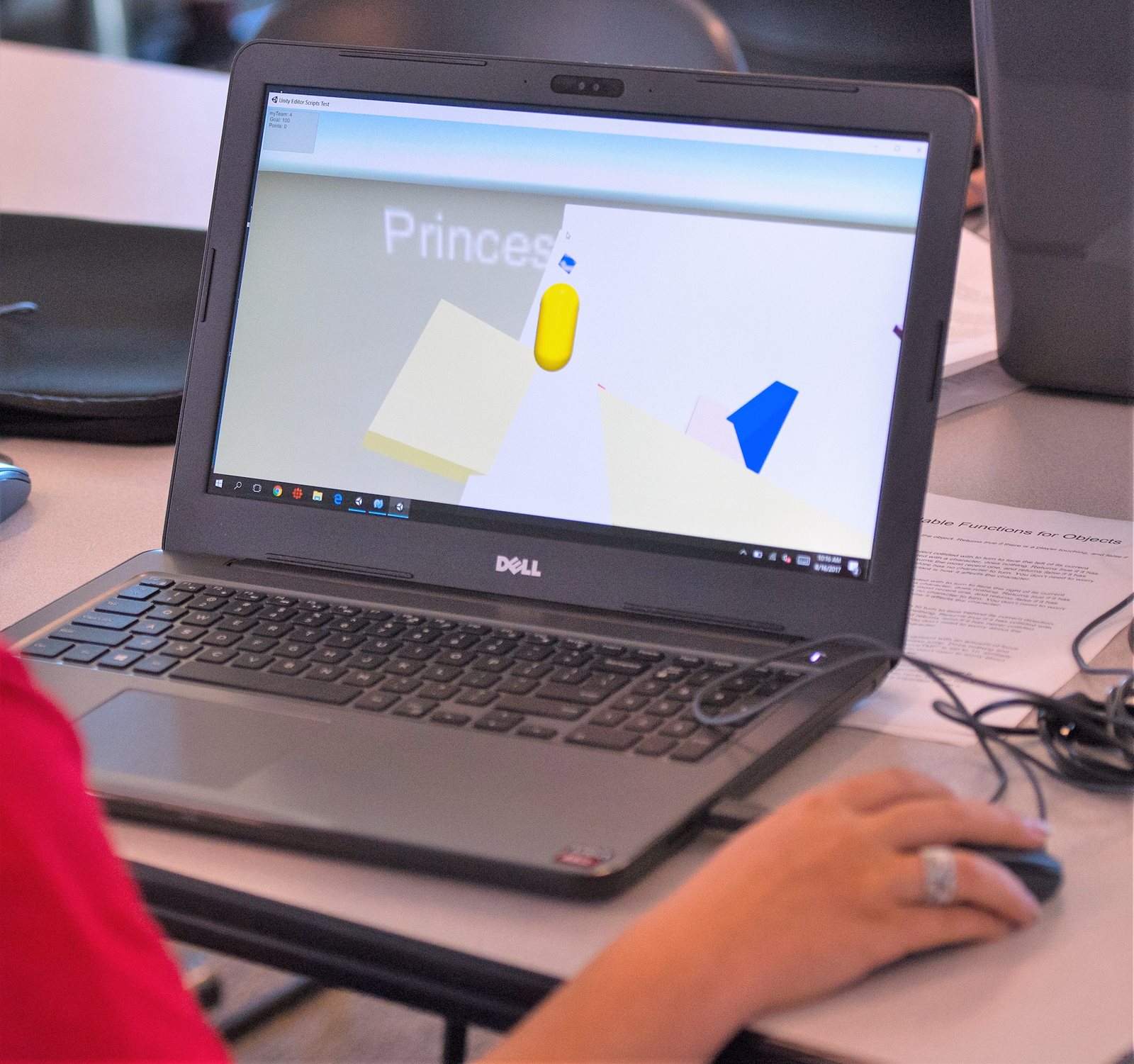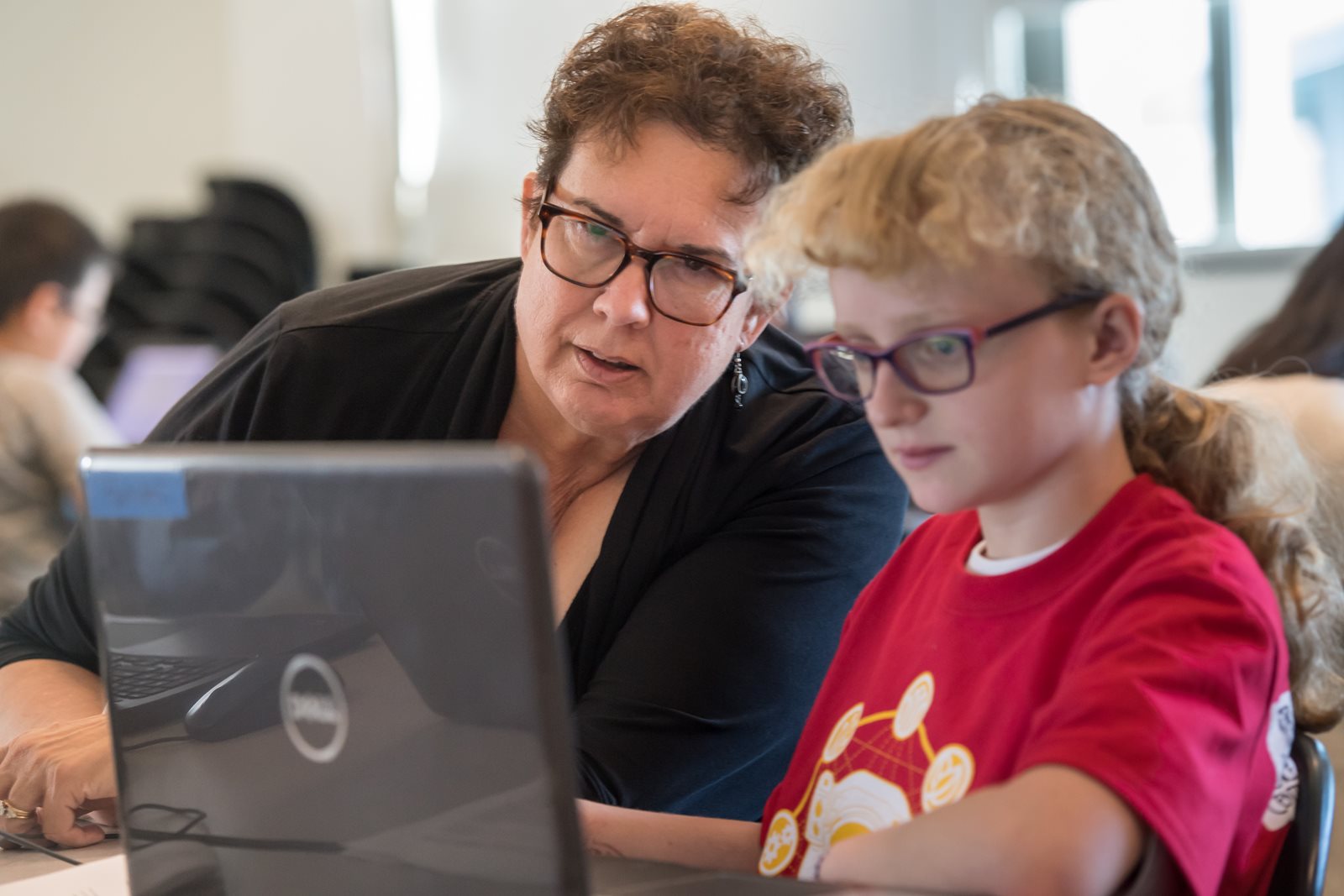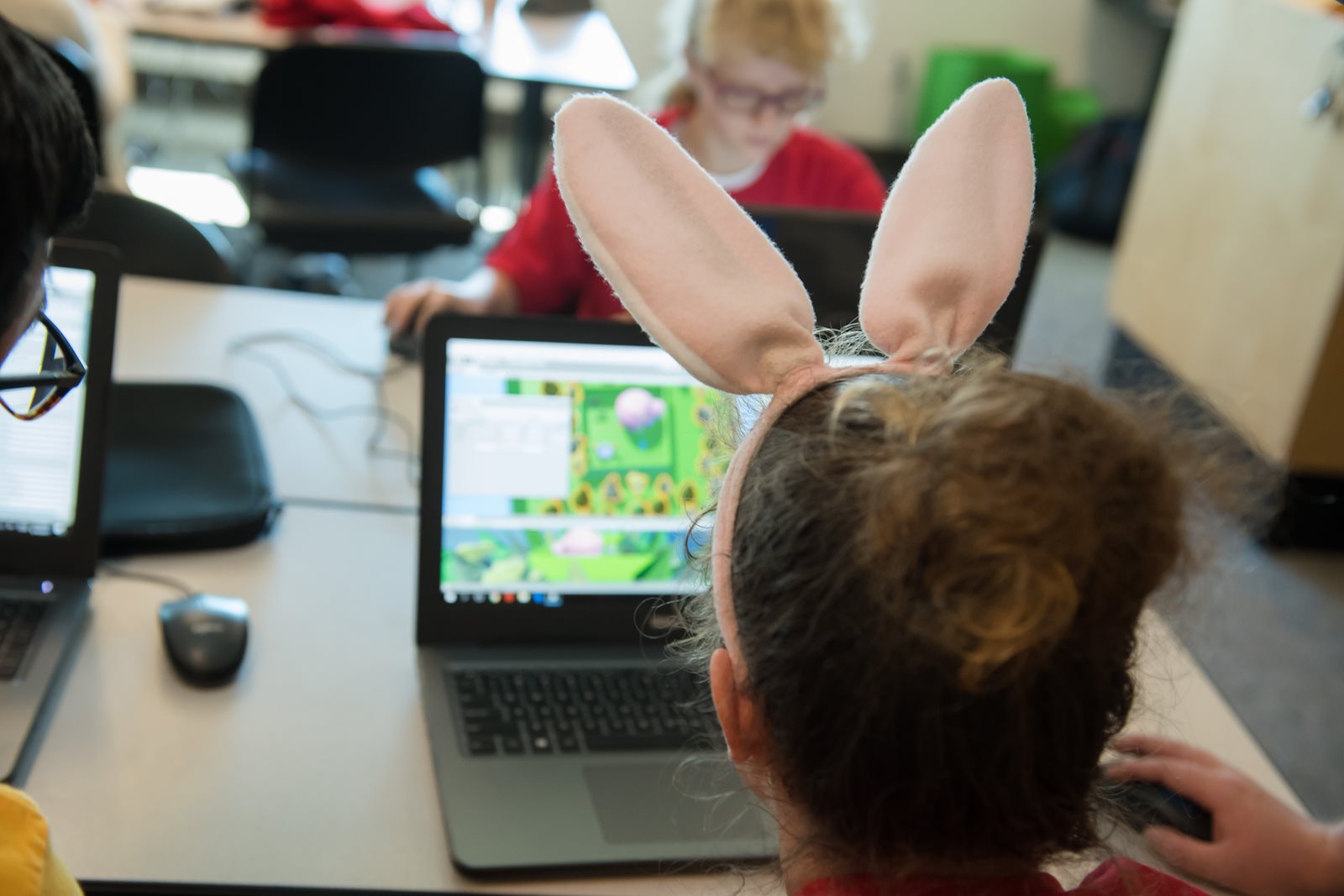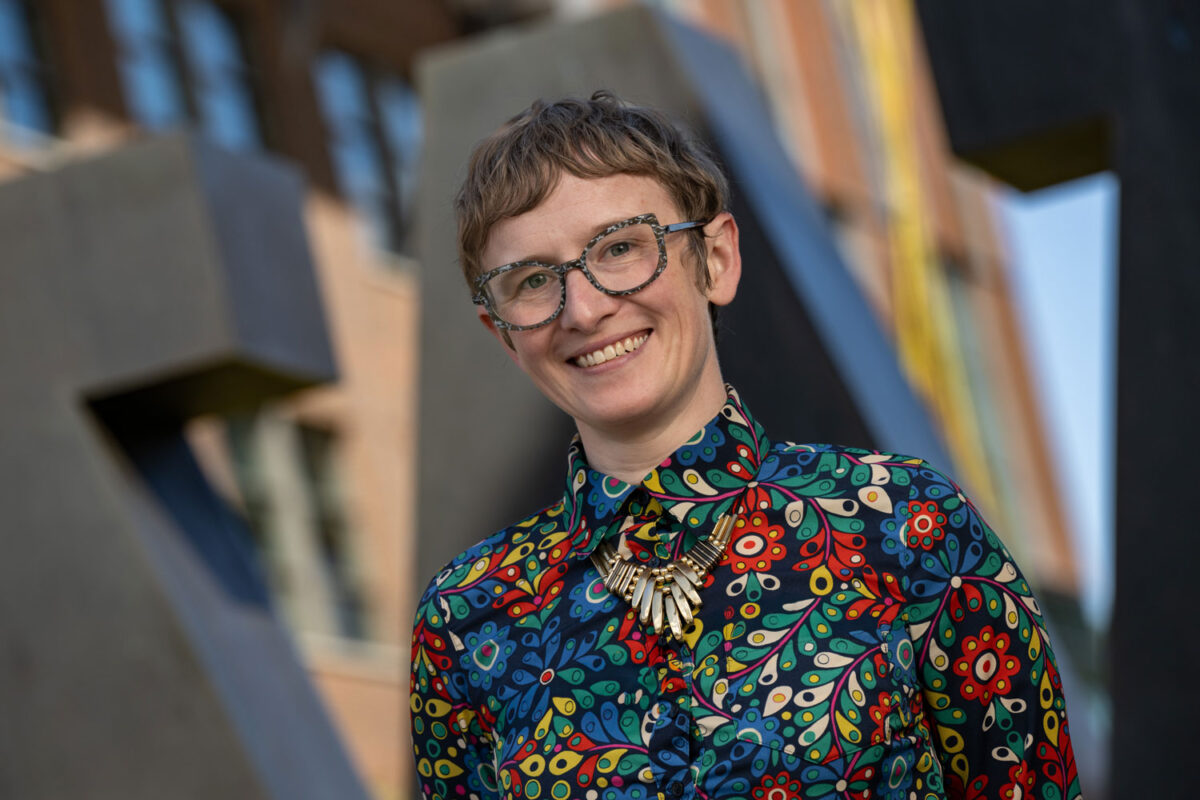The family of Noah Brown, 12, traveled from Yakima for the VR camp. (Marc Studer photos)
By Douglas Esser
Some of the same concepts in virtual reality (VR) that took a UW Bothell team to the national finals of Microsoft’s Imagine Cup earlier this year were introduced to middle school students at summer camps on campus.

“Just amazing. I’m blown away,” said Bob Bramel after donning a headset to see what two of his grandchildren had created in the Pacific Science Center camp taught by UW Bothell students.
Bramel, who remembers the days of programming on punch cards, is excited to wonder where his grandchildren will take the technology in 5 or 10 years.
The two were among about 20 campers at the VR camp who showed their work to parents and grandparents Aug. 11, the last day of that camp. Adults gathered around laptops and shared a VR headset as the UW Bothell classroom filled with chatter: “Walk through a wall,” “Look up at the tower,” “We’ve got a file missing,” “Is it the same executable?” “Did you debug your program?”

Photo: Students program on laptops.
Concepts for the camp arose from the Cross-Reality Collaboration Sandbox, a research group led by Kelvin Sung, a professor in the computing and software systems division in the UW Bothell School of Science, Technology, Engineering & Mathematics. Last April, three of Sung’s students advanced to the Imagine Cup finals used devices such as the Microsoft HoloLens, the Vive virtual reality headset and the Xbox Kinect motion sensing equipment to create an “ultra-reality” space to connect people in different locations.
Rafael M.L. Silva, a UW Bothell research engineer, then used that software library to create a platform with simple programming tools that middle school students can use.
“It’s very rewarding to see that happening,” Silva said.
At the week-long VR Hackathon, offered twice in August, sixth-to-eighth graders navigated in virtual space, creating and manipulating objects as if they were real.

Photo: Ann McMahon checks the work of McCall Barber, 13, Kirkland who says, “It’s fun to code the objects to do what you want them to do.”
One of the reasons for the camp’s success was the teachers – three UW Bothell students, two computer science majors and one education major.
They had been taught to work together to overcome a hurdle seen in previous computing camps: Computer science students know the technical material but not necessarily how to relate it; education students know how to relate to people but not much computer science.
Anticipating the summer camps, Sung along with Ann McMahon, the executive director of research strategy for broad impact, and Karen Gourd, a senior lecturer in the School of Educational Studies, collaborated on an experimental class to model how computer science and education students can work together to teach camps.
A total of 16 computer science and four education students from that spring class are teaching nine camps this summer in virtual reality and Java coding. The two VR camps and some of the Java camps were scheduled for the UW Bothell campus while the rest were held at the Pacific Science Center and other locations.
Computing and software systems majors Arrido Arfiadi (’18) and Thomas Oldham (’19), and master’s of education student Andrew Berry (’18) teamed up for the VR camps.

Photo: Rabbit-eared Charlotte Reiber, 13, Bothell, creating a “can you escape room” game.
Berry said the experience gave him a head start on student teaching. “It’s been awesome.” Arfiadi said the experience opened his mind to the education profession, and Oldham said he’s happy at how the class turned out. “I’m really impressed with what the kids have done.”
Sung said the experience is giving computer science students an appreciation of how to communicate knowledge and giving education students tools they can use. The summer camps might continue as an after-school program with the same content. In the process of building small virtual reality applications, young students learn how to program.
“I don’t think the kids know,” Sung said. “We trick them to learn something useful.”



